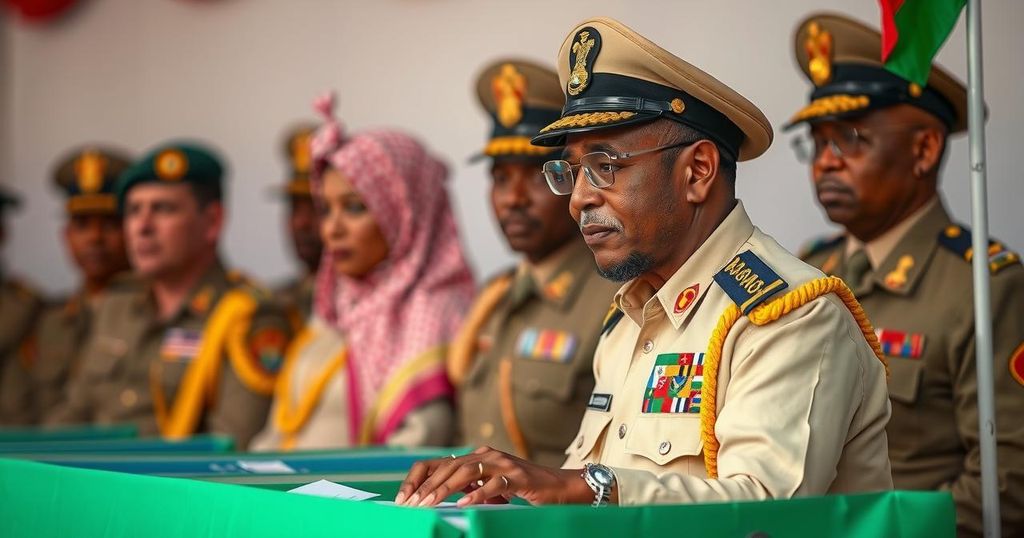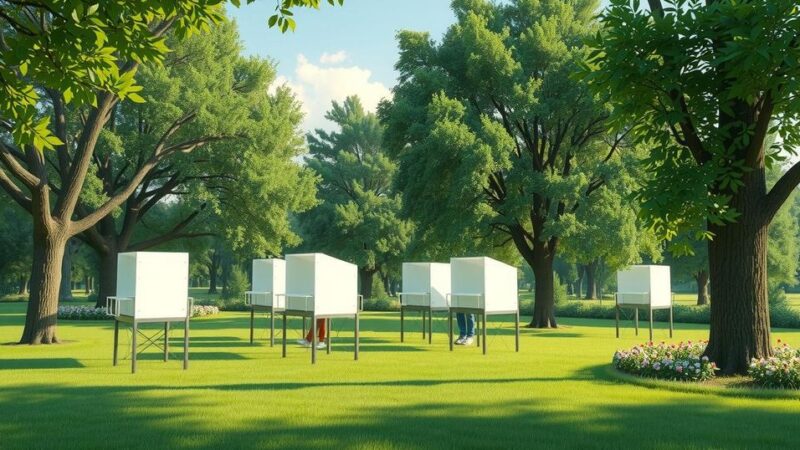Chad held its general elections amid accusations from opposition groups of predetermined results leading to a boycott. Turnout was low, with early figures indicating only 38 percent participation. President Deby, facing skepticism about the electoral process, encouraged voting as critical for democracy. Challenges such as climate change and security threats color the context of the elections, which were monitored by international observers.
Chad conducted a general election on Sunday, a pivotal move the government claims is vital for ending its military rule. However, low voter turnout is anticipated, as opposition groups called for a boycott of the elections. Early reports from the election management agency indicated a turnout of merely 38 percent for the selection of a new parliament, local councils, and provincial assemblies.
Election officials attributed the apathy to “cold weather” in affluent areas where ruling elites reside. Nonetheless, opposition leaders assert that the elections are predetermined and urged voters to abstain from participating. “They have all stayed at home following our call, that is, the overwhelming majority,” stated Succes Masra, leader of the opposition Transformers party, in an interview with AFP.
This boycott creates an advantage for candidates supporting President Mahamat Idriss Deby Itno, who came to power through military means in 2021 and legitimized his position in a presidential election last May, criticized by opponents as corrupt. President Deby appealed to the electorate on Facebook, sharing images of himself casting a vote and describing it as a “historic day.”
The opposition, voicing discontent, claimed, “The fabricated results are already in the computers,” according to Masra. Among those who did vote, sentiments of disenchantment prevailed, as construction worker Herve Natouingan deemed voting as “pointless” due to the lack of legitimate democratic processes in Chad. In contrast, Patrice Lumumba Deoumoundou, an unemployed citizen, expressed hope for substantial change, including job creation, more equitable treatment, and lowered living costs.
In prior elections, security forces and nomads had cast their votes a day earlier for logistical reasons, with the electoral management agency announcing significant participation rates among these groups, including 54 percent among nomads amid ongoing challenges stemming from climate change and livestock loss.
The election proceedings are being overseen by approximately 100 international observers and political party representatives. However, the opposition Democratic Party of the Chadian People mentioned incidents of ballot disappearances, demanding vigilance to combat alleged electoral fraud by the ruling party. The election backdrop also includes clashes with Boko Haram in the Lake Chad region and rising tensions in Sudan, shaping the transitional narrative for Chad, which has been under military oversight since Deby ascended to power in 2021 following the death of his father, a long-time ruler.
Chad has experienced a tumultuous political landscape since 2021, marked by the end of longstanding authoritarian rule following the death of President Idriss Deby Itno. His son, Mahamat Idriss Deby Itno, assumed power through a military coup, which has led to promises of a transition towards democracy. However, this process has faced challenges, including allegations of electoral fraud, poor voter engagement, and rising tensions with neighboring nations, notably influenced by security threats from groups like Boko Haram. Amidst this backdrop, Sunday’s elections were framed by the government as a key milestone towards restoring legitimate governance in the country despite significant resistance from opposition groups.
In conclusion, Chad’s general election signifies a critical juncture in the nation’s transition to democracy, confronting substantial challenges such as low voter turnout attributed to opposition-led boycotts and allegations of pre-determined outcomes. The discontent expressed by citizens reflects a broader sentiment of disillusionment with the electoral process. The results of this election will potentially impact the political landscape significantly, paving the way for future governance under Mahamat Idriss Deby Itno, while the opposition remains vigilant against perceived electoral injustices.
Original Source: www.khq.com






